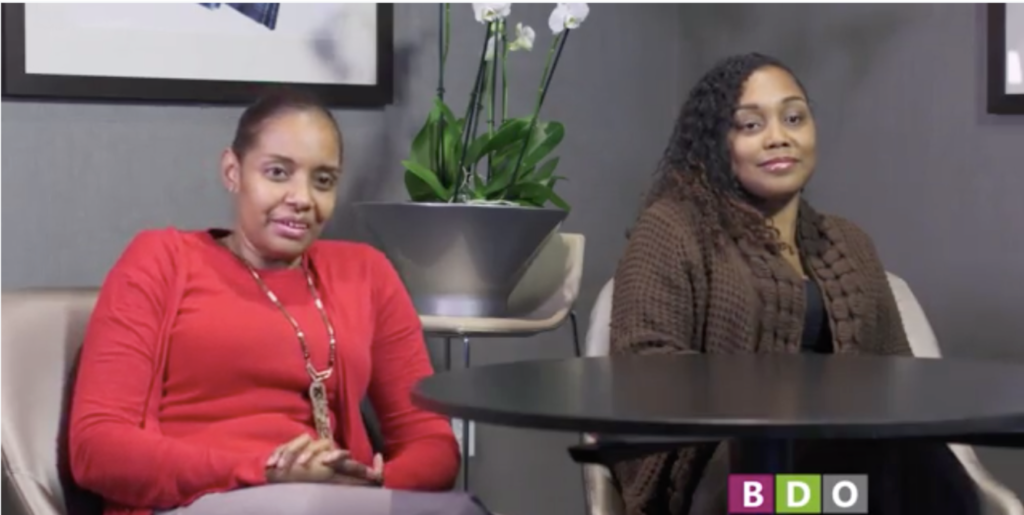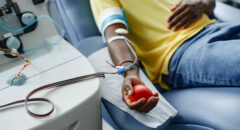
BDO talked with chef & sickle cell patient, Misty Williams and Marissa Coers, a fourth-generation sickle cell patient, who is also a patient advocate with access advocacy out of Los Angeles, California.
BDO: Wow, fourth-generation sickle cell patient. How is life growing up with family members with sickle cell as well?
Marissa: Intricate. I will say. My mother's eldest brother, my Uncle Teddy. Was born the same year sickle cell was considered a clinical illness. Where you are being treated in a hospital. My grandmother and great-grandmother said this is amazing. We can take them to the hospital people. By the time he was 30, he'd suffered from three strokes and the last one left him physically and mentally handicap. For the rest of his life.
READ: 5 Ways to Boost Your Immune System for Your Best Sickle Cell Health
My grandmother was his caretaker. And so when I came along. It was like. You will not. Be that way. This will not be you. So from that moment, I think I could smile not just talk with a smile. It was put into me [that] doctors are not always correct. You must speak up for yourself. You must tell people exactly what you're feeling, how you're feeling it (and when and why) and what you need.
It is exhausting but it is necessary. So you're in a bubble of the generations after you. You know it's like four-year-olds. You walk out the door. Auntie, Auntie. They're trying to tell you to you'll get a cold, but now you're the elder. So now [they] don't quite know how to talk to you but they know you are sick. So everyone is in a constant bubble around you trying to make sure that you're OK. It's complicated.
READ: Three Ways To Be A Strong Advocate For You And Your Family
BDO: So speaking directly to patients who have family members with sickle cell as well, and are able to see older family members go through that, what can you tell that patient now? That person that's reading this now. What would you say to encourage them?
Marissa: Every generation learns from the previous generation and the next generation is always hoping for that current one. So you have to be willing to open yourself up to them being protective over you and constantly teaching you the same lesson that they've learned over and over again because you will always pull something new from that story, from that lesson, and then apply it to your life and to your situation. Period. And continue to tell your story and continue to tell your doctors and nurses about you and the fact that you come from a line of people that have been dealing with this because they truly believe this disease was found out in the 60s and you know hey that's it.
No, I tracked these back 110 years in my family and...
... it's genetic so we know it goes [back] far more than that. So as a family we have learned from generation to generation and we will continue to teach outside of you. And we will teach you. You're going to learn it or you're not. But for me with my life and my life lesson, that's not negotiable. Period.
RELATED: Are These 5 Health Conditions In Your Family Tree?
BDO: So speaking about food and its relationships to sickle cell and you being a sickle cell patient as well, what are you eating now that's different than what you used to eat?
Misty: To be honest. I've had a family from Belize. And so we have a farm there. We have land there and so I am the first generation in my family to come to the states and both my grandmother and my parents had gardens in our backyard in Los Angeles. So we were growing a lot of our own stuff, to begin with. And I think being a chef was just definitely in my blood.
[I] did nursing for 13 years and I just always loved cooking so I just started catering for sickle cell events while doing this. And I just loved it so much that I changed over and started becoming a chef and went to culinary school.
The differences I learned in culinary school as well were what is in the food these days and [how] you can get healthy products [from] having relationships with butchers and things like that. If you're not just eating meat.
WATCH: How Does Sickle Cell Disease Really Affect Families? (Video)
But my grandmother was vegetarian so I learned how to make wonderful recipes from way back. And I continue to do that and add to it for vegetarians and for vegans.
I give options and do meal plans [with] vegetables and fruits, we all know how the food chain goes. I would say definitely the herbs, things like turmeric and ginger, and lots of ginger inflammatory stuff because with sickle cell that's one of our number one problems.
The swelling of the inflammatory and taking so many medications messes up your stomach and causes high acid levels. Nursing really helped me while doing the nutrition and finding out about the ingredients in the foods. I would say the only thing that's changed for me is honestly just adding more ingredients that are natural and you know incorporating that every day with every meal three times a day.








